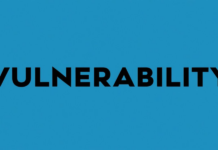
Nearly three years ago, a new wave of scams emerged, targeting individuals through phone calls and emails. Scammers claimed to possess intimate images of their victims and threatened to release them publicly unless a ransom was paid within a specified time frame.
This evolved into what is now known as the “S#$tortion” scam. In these schemes, victims are accused of visiting illicit websites monitored by law enforcement. To keep their browsing history private, the criminals demand payment, threatening to expose the victim’s details on social media, potentially damaging their reputation.
Recent findings from Cofense, an email security firm, reveal that scammers have intensified their tactics. They now threaten victims by claiming to know their exact whereabouts and have pinpointed their physical addresses. To bolster their threats, they send PDF files featuring Google Street View images, which are intended to validate their claims. However, researchers note that while the addresses may correspond to the victim’s general area, they do not show the victim’s actual home or workplace.
These threat actors are demanding payment in cryptocurrency, specifically Bitcoin, and warn that failure to comply will result in the release of personal information to the victim’s contacts on platforms like Facebook and Twitter.
From Google’s perspective, they utilize AI tools to filter out spam and extortion emails, but criminals often craft clever subject lines that bypass these filters, landing in unsuspecting users’ inboxes.
Cofense advises online users to be vigilant. Here are some tips for staying safe:
a. Avoid clicking on links from unknown sources.
b. Do not share intimate details, photos, or videos online, especially with people you do not fully trust.
c. If you receive an email impersonating law enforcement, report it to the authorities.
d. Never disclose personal information such as phone numbers, passwords, PINs, email addresses, or banking details, even to friends or family.
By remaining cautious and informed, individuals can better protect themselves against these malicious scams.




















